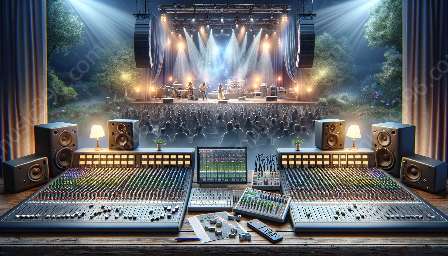As technology continues to advance, music playback device manufacturers have encountered numerous challenges in adapting to new audio formats. The evolution of music playback devices, particularly looking at CD and audio technology, has significantly influenced these challenges.
1. Changing Consumer Demands
One of the primary challenges for music playback device manufacturers is meeting the rapidly changing demands of consumers. With the advent of new audio formats, consumers expect devices that are compatible with these formats while providing high-quality sound output. Manufacturers must constantly innovate to keep up with these evolving demands.
2. Compatibility and Interoperability
New audio formats often bring about compatibility and interoperability issues for playback devices. Manufacturers need to ensure that their devices can support various audio formats, such as MP3, FLAC, and DSD, while maintaining seamless interoperability with other devices and platforms.
3. Digital Rights Management (DRM)
The implementation of DRM presents a significant challenge for music playback device manufacturers. New audio formats may come with strict DRM requirements, making it challenging to develop devices that can provide a seamless user experience while adhering to these restrictions.
4. Balancing Size and Performance
As new audio formats emerge, manufacturers face the challenge of balancing the size of their playback devices with the need for high-performance audio output. This requires constant innovation in miniaturization techniques and efficient sound processing technologies.
5. Consumer Education and Adoption
Introducing new audio formats often necessitates educating consumers about the benefits and features of these formats. Manufacturers must invest in marketing and educational efforts to drive consumer adoption of the new formats, which can be a challenging and time-consuming process.
6. Rapid Technological Advancements
The rapid pace of technological advancements presents an ongoing challenge for music playback device manufacturers. Keeping up with the latest audio codecs, compression algorithms, and digital signal processing techniques requires continuous research and development efforts.
Evolution of Music Playback Devices
The evolution of music playback devices has been marked by significant milestones, with each era bringing advancements in audio technology. One key development was the introduction of the compact disc (CD) in the 1980s, revolutionizing music storage and playback.
CD and Audio Technology
The introduction of the CD format presented both opportunities and challenges for music playback device manufacturers. CD players had to be designed to read and decode digital audio data accurately, leading to advancements in laser technology and error correction mechanisms.
Manufacturers also had to adapt to the shift from analog to digital audio, requiring the integration of digital-to-analog converters (DACs) and high-quality audio output stages in their devices.
Moreover, as the demand for portable music playback grew, manufacturers developed portable CD players and eventually transitioned to digital audio players, such as MP3 players, in response to changing consumer preferences.






























